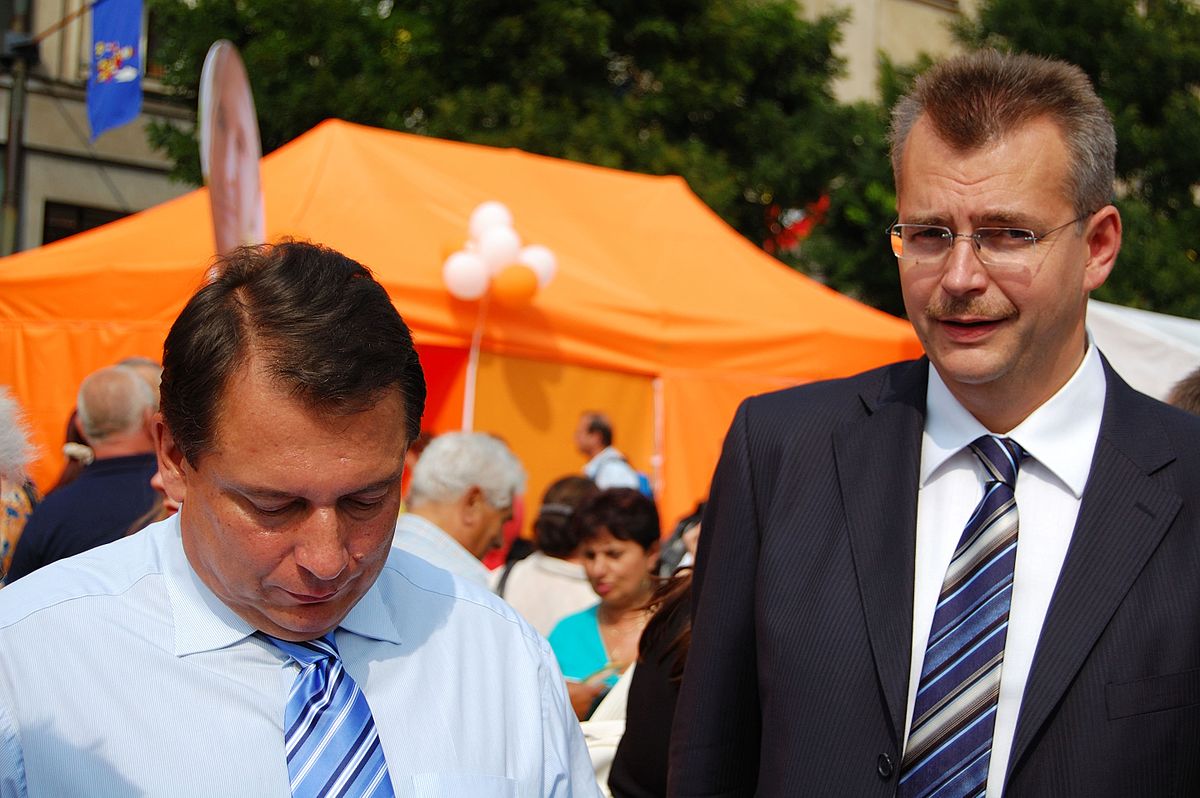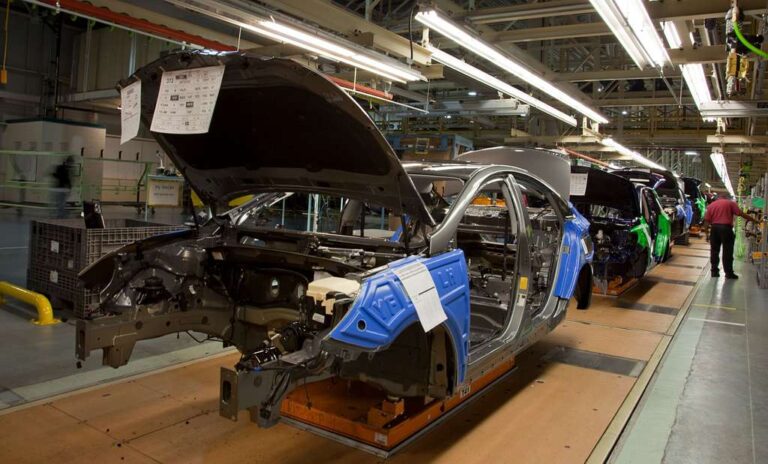Navigating the Nexus of Business and Politics in Sino-Czech Relations

With a new coalition agreement on the table, the Czech Republic is on the verge of entering a new political chapter. Despite being rarely addressed in the pre-election period, it may be anticipated that the Czech foreign policy is forging ahead along a new path, as shown in the detailed overview of the political programs conducted by MapInfluenCE.
The two party coalitions which are set to compose the government, SPOLU (Together) and Piráti and Starostové (Pirates and Mayors), may find common ground in terms of formulating the foreign policy agenda, including on China. For instance, both coalitions declared their intention to emphasize the role of human rights, strengthen cooperation with Taiwan, and exclude China from the critical sectors of the economy.
Despite the elected representatives’ visibility as primary agenda-setters, the election results have also impacted underlying business and personal connections that have underpinned the Sino-Czech relations over the preceding decade. These linkages are evident in the interactive visualization recently published by MapInfluenCE, providing abundant contextual information on the links between agenda-setters involved in China-related activities
The Social Democrats Connection
In the recent election, two crucial and long-term proponents of deeper cooperation with China, the Social Democrats (ČSSD) and the Communist Party (KSČM), failed to reach the five percent threshold to enter the Chamber of Deputies. As evident from the visualization, a significant proportion of the agenda-setters and businessmen with China links have been tied to ČSSD.
Under former Prime Minister Jiří Paroubek (2005-2006), the Social Democrats heralded the importance of building ties with China. Reciprocal visits of Paroubek and Chinese Prime Minister Wen Jiabao were made in this period, enabling a breakthrough in relations. Since leaving office, Paroubek has slowly faded into obscurity. However, he has been a popular fixture at China-organized events, singing praises of the Chinese Communist Party (CCP) in appearances in Chinese media. He is also a frequent contributor to an opinion website where he provides his insights on political development in the country, including policy towards China. For example, he recently questioned the human rights abuses in Xinjiang, echoing Beijing’s efforts to blunt international criticism.
When Social Democrats returned to power in 2014 under Prime Minister Sobotka, it again heralded changes in Czech China policy. The road to closer ties with China was paved on a party level even before that, when in 2012 the Social Democrats led a party delegation to China. During this trip, the Social Democrats allegedly signed a memorandum of cooperation with the Chinese Communist Party. Besides the intention to strengthen relations among these political parties, the two sides discussed promoting economic, cultural, and local cooperation in Sino-Czech relations. Chinese communist functionaries later lauded cooperation with ČSSD as a successful example of CCP’s party outreach.
Indeed, during Sobotka’s tenure (2014-2017), the foreign policy towards China has undergone a significant transformation, leading to a “golden era” of bilateral ties. Noticeably, a more positive attitude toward China was expressed by ČSSD members, as shown by the analysis of the parliamentary discourse in the period. The policy turn opened the door to an intensified economic cooperation as well, with CEFC Europe entering the Czech market and becoming the best-known example of Chinese business operating there. Apart from acquiring shares across a wide spectrum of businesses, CEFC also became a hot spot for politics-business nexus.
Several former ČSSD politicians joined CEFC, including Štefan Füle, former diplomat and European Commissioner, and Jaroslav Tvrdík, former Minister of Defense. Tvrdík has been the most active lobbyist on the Czech scene, helping companies such as PPF subsidiary Home Credit on the Chinese market. Since 2014, he has chaired the Czech China Chamber of Cooperation, which aims to facilitate economic relations between Czech and Chinese entities. Tvrdík and his chamber stand at the center of linkages for the business and political elites, capitalizing on his previous political experience and personal connections.
After the 2017 election, ČSSD was relegated to a minority party in the government formed by ANO, led by Prime Minister Andrej Babiš. During this period, the Sino-Czech relations weakened compared to the previous period when ČSSD had a stronger political voice. Nevertheless, ČSSD chairman and Minister of Interior Jan Hamáček continued to pursue the focus on bolstering economic cooperation with China. In spring 2020, he was entrusted with the coordination of Sino-Czech relations by President Zeman and at the coronavirus pandemic onset, he sought the assistance of Jaroslav Tvrdík to secure an air bridge between China and Czechia to deliver medical supplies provided by China.
On the other hand, former Minister of Foreign Affairs Tomáš Petříček, nominated by ČSSD, held a more balanced approach towards China, often underscoring the human rights issues. Interestingly, Petříček was advised by Miroslav Sklenář, who at that time worked for Czech China Chamber of Collaboration and held the position of director of external relations in CEFC. Jakub Kulhánek, Petříček’s successor in the role of foreign minister, also worked as an external consultant for CEFC in between his stints at the Ministry.
This revolving door phenomenon has been a prominent feature of Sino-Czech links. Most notably, several former Prime Ministers, including Jiří Paroubek (ČSSD), Petr Nečas (ODS) and Bohuslav Sobotka (ČSSD), have been involved in lobbying for Czech companies in China or have maintained other China connections.
Civic Democrats and Economic Pragmatism
Despite the prominent position of ČSSD, China links have not been limited to a sole political party. Civic Democrats (ODS), which are to lead the new government, also figure prominently among political and business elites linked to Chinese activities in Czechia.
In the case of ODS, there has long been a tendency to strive for economic pragmatism in foreign policy. For instance, former Prime Minister Petr Nečas (2010-2013), provided crucial political support to further economic cooperation with China, including the participation of the Czech Republic in the 16+1 platform. This created an opening upon which the Social Democrats later built their policy turn. Nečas also criticized support for the Dalai Lama and Tibet, emphasizing the need to avoid letting human rights issues damage economic cooperation with China. After leaving active politics, Nečas pursued a career as a consultant for companies endeavoring to enter the Chinese market. His stress on economic ties prevails as apparent in his recent media comments on the current state of Sino-Czech relations, mentioning that “the escalation is counterproductive, everyone laughs at us and takes the place of Czech companies.”
Another example of an ODS politician with a prominent role in supporting ties with China is Jan Zahradil, a former chair of the EU-China Friendship Group in the European Parliament. His participation in this controversial entity raised concerns as he was also the Vice-Chair of the Committee on International Trade and therefore had access to sensitive information.
On the other hand, other members of ODS, including the current President of the Senate Miloš Vystrčil, have renewed the importance of human rights in foreign policy. Vystrčil belongs among the loudest supporters of tighter cooperation with Taiwan, underlined by his visit to Taiwan in autumn 2020. Vystrčil also met with the Taiwanese Minister of Foreign Affairs Joseph Wu during his recent visit to the Czech Republic, when both politicians underlined shared values of democracy and freedom.
Changing Course
Given the uncertainties surrounding the health condition of President Miloš Zeman and lack of proper communication with the public regarding his abilities to perform his duties, a crucial reshuffle may also be anticipated in the presidential office. Therefore, businessmen and political elites linked to the President may find their political support weakened. This is an exceptionally important development, as President Zeman has long been one of the most active and effective agenda-setters in terms of bolstering ties with China. Moreover, Zeman pledged to visit China in 2022 in order to soothe frayed ties, but his poor health now makes the plans unlikely.
With Zeman fraught with health issues and both the Social Democrats and Communists out of the parliament, there is now a conspicuous lack of political support for ties with China. Still, the writing on the wall has been there for a longer time. As the buzz surrounding CEFC and later CITIC did not translate into many benefits for the country’s economy, Czechia has grown more skeptical about Chinese involvement after years of unfulfilled promises.
China has clearly put its hope on building close ties with political and business elites, but the bet did not lead to long-term gains. With the new government at the helm, the environment may become even less favorable for those with stakes in the relationship with China, whether in politics or business. Still, it would not be all that surprising if some of the politicians now leaving the stage find some engagement in China-related business.
Going forward, it will be interesting to follow how China will react to these developments, and whether it will try to create new linkages. Seeking to bolster ties with ANO, soon to be the leader of the opposition, may become an attractive proposition for Beijing. While ANO leader Babiš has been known for his lukewarm views on China, he has also shown that he can change the tact on key issues when it suits his political interests.
You can access the full interactive map from MapInfluenCE here.
Written by
Filip Šebok
Filip Šebok is an analyst at CEIAS. He was a China Research Fellow and Project Manager at the Association for International Affairs (AMO) in Prague, Czech Republic.
Veronika Blablová
Veronika Blablová is an analyst at CEIAS.


